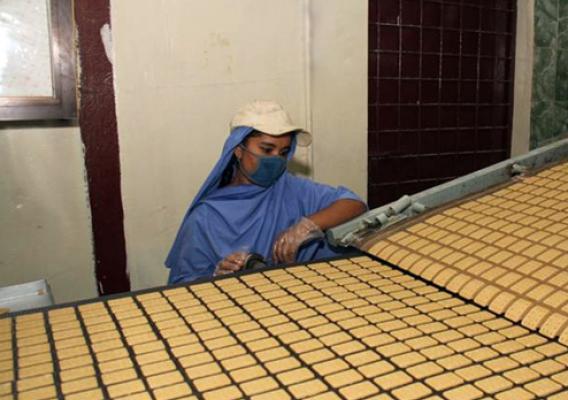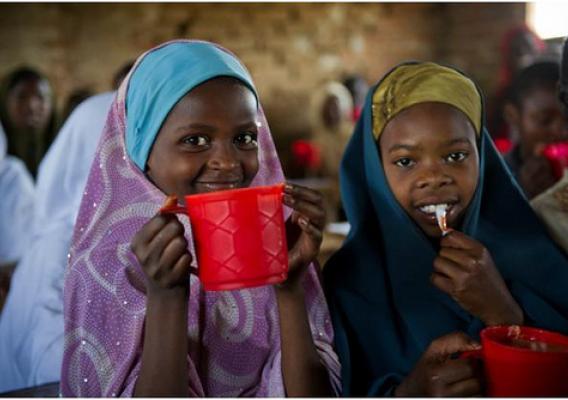As summer break winds down, children around the world prepare for a new school year. But for some children, going to school is more than making new friends and learning new subjects; it’s an opportunity to eat a full, nutritious meal.
The Foreign Agricultural Service’s (FAS) McGovern-Dole Food for Education Program helps provide these meals to children in low-income, food-deficit countries that are committed to universal education. The program aligns with President Obama’s Feed the Future initiative and has helped feed millions of children over the years. One example of the success of this program can be found in the Republic of Congo, where the undernourishment rate of children is estimated at nearly 35 percent of the population.
Since 2001, FAS has implemented four McGovern-Dole Programs in Congo through the non-profit organization, International Partnership for Human Development (IPHD). During this time, IPHD distributed about 30,000 metric tons of U.S.-donated foods (rice, beans, potato flakes and vegetable oil) to nearly 150,000 pre-school and primary school-age Congolese children. IPHD also supported school infrastructure, parent-teacher associations and children’s health needs.








